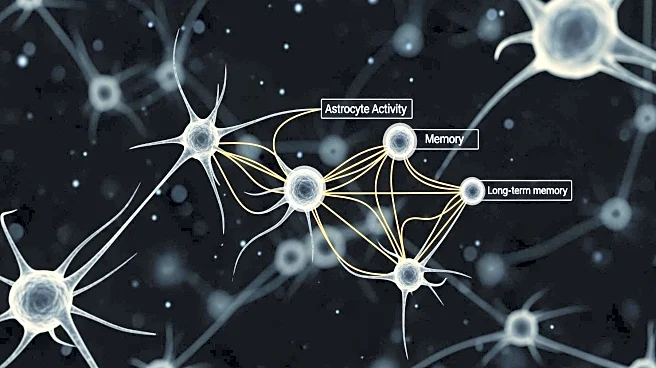What's Happening?
Scientists from the RIKEN Center for Brain Science have identified astrocytes as key players in the formation of long-term memories in mice. The research, published in Nature, shows that emotionally intense experiences, such as fear, leave lasting marks
on small groups of astrocytes, which can re-engage during memory recall. Led by Jun Nagai, PhD, the study used fluorescent labeling to track astrocyte activity, revealing that these cells produce Fos protein in response to emotional experiences. Unlike neurons, astrocytes showed strong Fos activity during recall, suggesting their role in stabilizing long-term memories.
Why It's Important?
This discovery could have significant implications for understanding and treating conditions like PTSD, where emotionally intense memories persist or are triggered by generalized stimuli. By targeting the astrocytic memory switch, new therapeutic approaches could be developed to gently dampen traumatic memories while preserving others. Additionally, the astrocyte-tagging process may inspire AI models that mimic human memory filtering, potentially leading to more energy-efficient and context-aware AI systems.
What's Next?
The researchers plan to investigate how astrocytes are selected to gate memory stabilization and explore whether specific types of memories can be suppressed or enhanced by manipulating astrocyte activity. This could lead to breakthroughs in treating memory-related disorders and developing AI systems that efficiently manage memory based on emotional significance.
Beyond the Headlines
The study highlights the potential for astrocytes to influence memory processes beyond their traditional supportive role in the brain. Understanding how astrocytes contribute to memory stabilization could reshape our approach to neurological research and therapy, emphasizing the importance of non-neuronal cells in cognitive functions.















